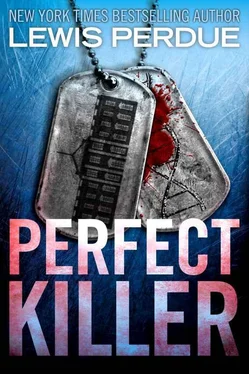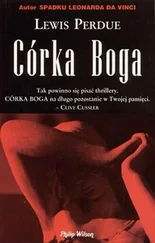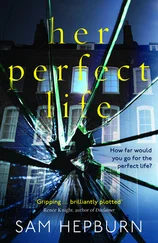Lewis Perdue - Perfect killer
Здесь есть возможность читать онлайн «Lewis Perdue - Perfect killer» весь текст электронной книги совершенно бесплатно (целиком полную версию без сокращений). В некоторых случаях можно слушать аудио, скачать через торрент в формате fb2 и присутствует краткое содержание. Жанр: Триллер, на английском языке. Описание произведения, (предисловие) а так же отзывы посетителей доступны на портале библиотеки ЛибКат.
- Название:Perfect killer
- Автор:
- Жанр:
- Год:неизвестен
- ISBN:нет данных
- Рейтинг книги:5 / 5. Голосов: 1
-
Избранное:Добавить в избранное
- Отзывы:
-
Ваша оценка:
- 100
- 1
- 2
- 3
- 4
- 5
Perfect killer: краткое содержание, описание и аннотация
Предлагаем к чтению аннотацию, описание, краткое содержание или предисловие (зависит от того, что написал сам автор книги «Perfect killer»). Если вы не нашли необходимую информацию о книге — напишите в комментариях, мы постараемся отыскать её.
Perfect killer — читать онлайн бесплатно полную книгу (весь текст) целиком
Ниже представлен текст книги, разбитый по страницам. Система сохранения места последней прочитанной страницы, позволяет с удобством читать онлайн бесплатно книгу «Perfect killer», без необходимости каждый раз заново искать на чём Вы остановились. Поставьте закладку, и сможете в любой момент перейти на страницу, на которой закончили чтение.
Интервал:
Закладка:
"Just bruises."
"Good. Well, I wanted you to know the payment arrived." He paused. "Take care of yourself."
"Doing my best." I started to say good-bye, then a thought came to me.
"Juan, can you print out a copy of the transaction record and fax it to me? It'll remind me to deal with it when I get time."
"Done."
"Thanks."
After I hung up, I turned on my laptop and worried about where the funds had actually come from. I slipped into a softly worn pair of khaki cargo pants and pulled the laundry plastic off a blue, oxford-cloth, button-down shirt. I refilled my coffee mug as I slipped on socks and my spare pair of walking shoes before settling down in front of my laptop. I felt a memory rising from unremembered dreams. These came from time to time; some might call it inspiration and others a message from the divine.
As the ideas coalesced, I double-clicked OpenOffice and slipped a Mozart piano concerto into the laptop's CD drive. Finally I slipped on headphones and sat still, eyes closed. The music cleared my head and I began to write. Soon, everything else vanished.
Eventually the music ended and left me looking at new words for the first time. I often felt like a conduit rather than a creator. This would make for a provocative presentation to the postdocs from Toronto.
Sonia walked in with a grilled-cheese sandwich and a large mug of chicken soup.
"Not to disturb you, but your postdocs will want you in about half an hour." She set lunch on the table.
The writing spell faded and the rest of my life raced toward me: the J2 icon on my laptop screen told me Juan's fax had arrived with my e-mail; my iPhone whined its lowbattery plea; the time startled me. I looked my watch.
"Wow!" The writing had consumed my morning and the beginning of the afternoon. An urgent rush rippled through me.
Sonia waited until I had sampled the chicken soup before retreating from the room. I printed a hard copy of what I had written, then pulled up the fax image on-screen and tried to decipher the banking gibberish as I wolfed down lunch.
The money came from an insurance company in the Isle of Man, asset playground for spooks, terrorists, tax evaders, and others with enough money and motivation to play international three-card monte with their cash. I had received wire transfers in my other life that had originated from places like this. I did not want that part of my past creeping up on me again.
With time running out, I grabbed the pages from the printer and retrieved my stilldamp wallet from my shorts along with a Space pen, a small blue Leatherman tool attached to one of my old military service dog tags, and a tiny, thin LED light that shone bright blue when you squeezed the sides. I grabbed my phone and headed out with Sonia's good wishes echoing behind.
As I rushed along the corridor, I pulled up Chris Nellis on my speed-dial list and got his answering machine.
"Chris, I had an interesting conversation about what you found in and around the Jambalaya. Call me on my cell when you can." I left the number, hung up, and set the phone's ringer to vibrate. When I reached the enclosed bridge to the next building, I began a jog toward the conference room inside, the half dozen postdoctoral students from Toronto were sitting around a long, elliptical plastic-laminate table, drinking coffee from a variety of disposable cups. The rest of the seats around the table along with the standing room around the windowless walls were jammed with a collection of my current students I vaguely recognized but whose names I could not recall.
The conversation lulled when I entered the room and made my way to the big white board at the front.
"Good afternoon," I greeted them. "Before we get started, I want you to know that if today's lecture is interesting and you want more, you can find my notes and other data at my Web site: ConsciousnessStudies. org." I turned and wrote the address on the white board.
"Okay." I turned to face them. "Let's begin with a question: Did you really decide to attend this seminar today, or are you here because of some unremembered incident last year or maybe during your infancy?"
The attendees unanimously gave me the confused stares I wanted.
"Or maybe you're here because of some artifact lurking in your DNA?" Their befuddlement deepened.
"Some among us today believe everything you do is predestined. These reductionists and determinists whose dogma dominate brain science today think free will is an illusion and consciousness an accidental by-product of synaptic electricity."
A couple of the faculty members present, acolytes of the orthodox, frowned deeply at this.
I tapped an index finger against my temple."'One hundred percent in the meatware,' they say. ‘Inspiration, meditation, right and wrong, eloquence, philosophy, do not exist; transcendence is a fantasy and everything's just the meat talking.'"
Most heads shook their disagreement.
"This issue transcends science because free will underpins our relationships with others and forms the philosophical foundations of law and society. Genuine accidents carry a different reaction than intentional injury or insult. Courts treat two people convicted of identical crimes very differently if one's insane or visibly, provably braindamaged.
"Sadly, the scientific mainstream has mishandled free will. They have a vested intellectual interest in promoting politically correct science over reality, just as the Renaissance Vatican favored the religiously correct over provably factual heresy.
"They conveniently forget Albert Einstein when he said that ‘science without religion is lame; religion without science is blind.'"
I ignored an assassinating frown from a slight man sitting toward the back of the room. The man, Jean-Claude Bouvet, had a lot to lose if I was right. A widely published author and leader of the "consciousness as meatware" movement, Bouvet was a pompous, brilliant man who received lavish research funding from large pharmaceutical companies.
"We will speak heresy today," I continued. "Because like Copernicus, our search for truth requires that we see things as they are, rather than as we would like for them to be. This means setting aside politics, social engineering, and corporate profits to accept the unwelcome pain of unexpected discoveries. Unlike our reductionist colleagues" — I singled out Bouvet with a glance- "we will deal with science rather than fantasy."
Bouvet mumbled something derogatory, and I continued without acknowledging him.
"Our quest for the truth begins with three important steps:
"One, free will derives from consciousness. Two, consciousness is our perception of reality. Three, reality is weird."
This produced a titter of nervous laughter.
"There's no real argument over the first two steps," I continued. "Because without the awareness provided by consciousness, there can be no exercise of free will. And even the most orthodox priests of reductionism agree that consciousness is perception. But the nature of reality divides us bitterly.
"The reductionists believe we live in a classical, clockwork universe as defined by Sir Isaac Newton where any future action can be predicted by knowing all the data about its starting point and every starting point can he determined by reversing the process.
"The classicists also believe that all action must be local. But entanglement-the foundation of quantum cryptography now being tested by banks for money transfers- proves that actions on a particle here can instantaneously affect an entangled particle anywhere else in the universe.
"Uncertainty and entanglement mean that biological reductionism is about as right as the Vatican was about astronomy in Copernican days. Quantum physics has trumped Newton's classical physics in everything from semiconductors, global-positioning satellites, and nuclear bombs. Despite this, classicists cling to predictability despite quantum physics' proof that uncertainty rules the universe.
Читать дальшеИнтервал:
Закладка:
Похожие книги на «Perfect killer»
Представляем Вашему вниманию похожие книги на «Perfect killer» списком для выбора. Мы отобрали схожую по названию и смыслу литературу в надежде предоставить читателям больше вариантов отыскать новые, интересные, ещё непрочитанные произведения.
Обсуждение, отзывы о книге «Perfect killer» и просто собственные мнения читателей. Оставьте ваши комментарии, напишите, что Вы думаете о произведении, его смысле или главных героях. Укажите что конкретно понравилось, а что нет, и почему Вы так считаете.












